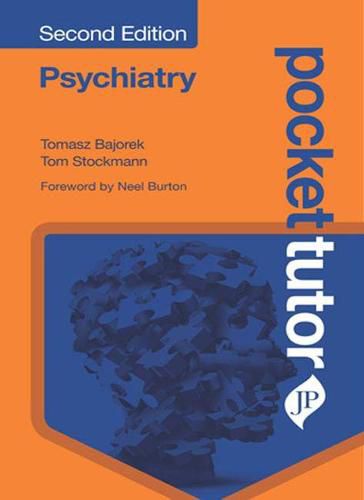Readings Newsletter
Become a Readings Member to make your shopping experience even easier.
Sign in or sign up for free!
You’re not far away from qualifying for FREE standard shipping within Australia
You’ve qualified for FREE standard shipping within Australia
The cart is loading…






Titles in the Pocket Tutor series give practical guidance on subjects that medical students and foundation doctors need help with ‘on the go’, at a highly-affordable price that puts them within reach of those rotating through modular courses or working on attachment.
Topics reflect information needs stemming from today’s integrated undergraduate and foundation courses:
Common presentations Investigation options (e.g. ECG, imaging) Clinical and patient-orientated skills (e.g. examinations, history-taking)
The highly-structured, bite-size content helps novices combat the ‘fear factor’ associated with day-to-day clinical training, and provides a detailed resource that students and junior doctors can carry in their pocket.
Key points
Logical, sequential content: an introduction to the clinical essentials of psychiatric practice, then chapters devoted to common groups of disorders and clinical issues, e.g. mood disorders, anxiety disorders, child and adolescent psychiatry Fully updated to reflect the new DSM V Additional content on old age psychiatry and social care. New chapter on mental health services and legislation
$9.00 standard shipping within Australia
FREE standard shipping within Australia for orders over $100.00
Express & International shipping calculated at checkout
Titles in the Pocket Tutor series give practical guidance on subjects that medical students and foundation doctors need help with ‘on the go’, at a highly-affordable price that puts them within reach of those rotating through modular courses or working on attachment.
Topics reflect information needs stemming from today’s integrated undergraduate and foundation courses:
Common presentations Investigation options (e.g. ECG, imaging) Clinical and patient-orientated skills (e.g. examinations, history-taking)
The highly-structured, bite-size content helps novices combat the ‘fear factor’ associated with day-to-day clinical training, and provides a detailed resource that students and junior doctors can carry in their pocket.
Key points
Logical, sequential content: an introduction to the clinical essentials of psychiatric practice, then chapters devoted to common groups of disorders and clinical issues, e.g. mood disorders, anxiety disorders, child and adolescent psychiatry Fully updated to reflect the new DSM V Additional content on old age psychiatry and social care. New chapter on mental health services and legislation